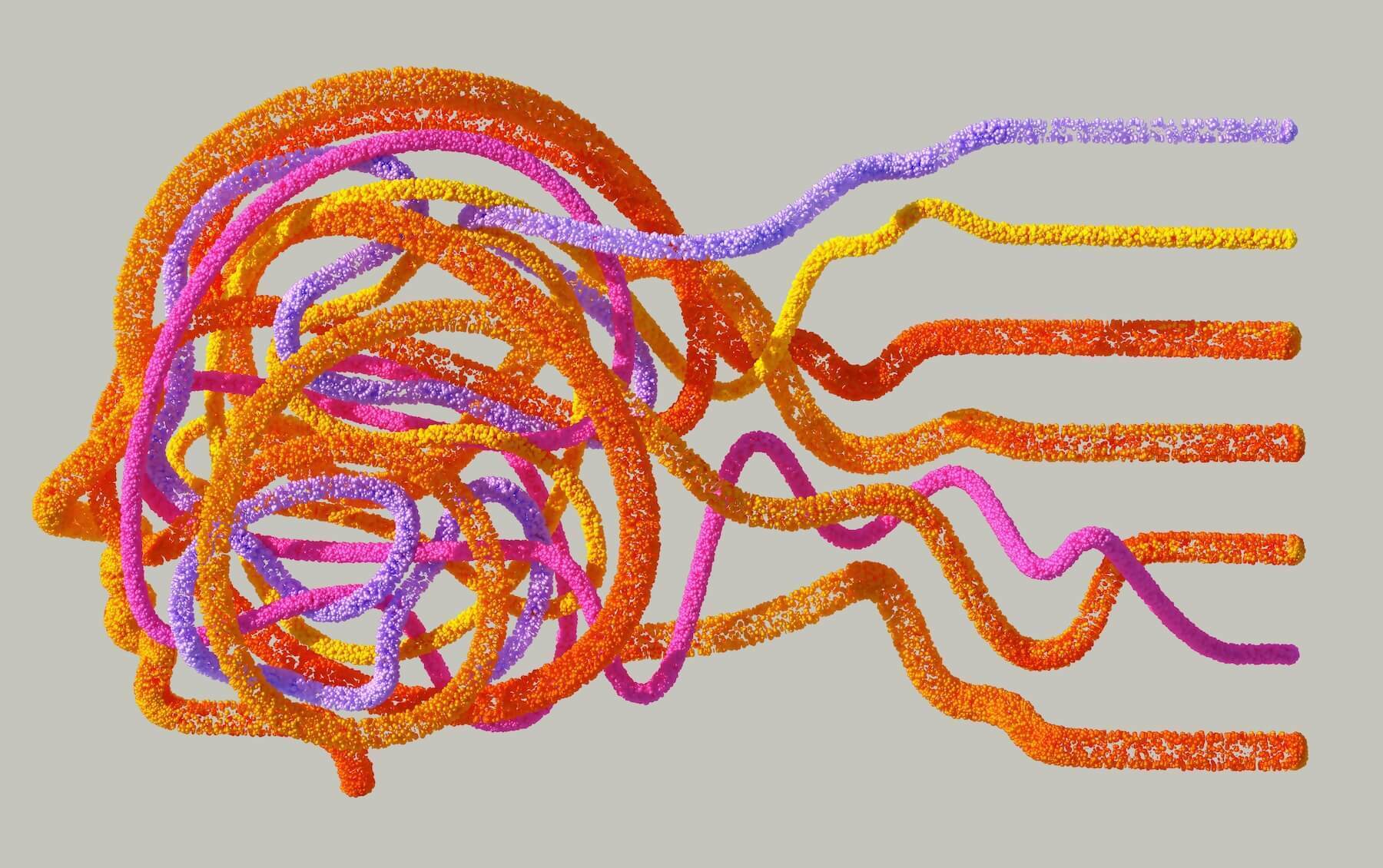- CAN-BIND transforme le traitement de la dépression, passant d'une approche par essais et erreurs à une médecine de précision. Ses recherches novatrices, publiées dans le cadre de l'essai clinique OPTIMUM-D, démontrent que les ondes cérébrales peuvent prédire l'efficacité d'un traitement en deux semaines et orienter des soins personnalisés.
- La recherche menée par l'Ontario façonne les normes nationales en matière de santé mentale. Elle participe au développement de lignes directrices sur les troubles anxieux et de l'humeur périnatale de Canadian Network for Mood and Anxiety Treatments (CANMAT) et a permis de créer le premier centre de recherche psychédélique du Canada à Kingston.
- Ce programme de l'IOC répond au besoin urgent d'améliorer les traitements contre la dépression en développant des biomarqueurs et des méthodes de recherche normalisées pour soutenir le cinquième des Canadiens touchés chaque année par un trouble de santé mentale et les 14 % de gens qui connaîtront une dépression majeure au cours de leur vie.
Pour des millions de Canadiens et Canadiennes, trouver le bon traitement contre la dépression est un long parcours frustrant, ponctué d'essais et d'erreurs. Le soulagement ne survient souvent qu'après des mois de médication et de traitement, sans que la personne ne perçoive d'amélioration de ses symptômes. Pour le cinquième des Canadiens touchés chaque année par un trouble de santé mentale et les 14 % de gens qui connaîtront une dépression majeure au cours de leur vie, cette situation n'a rien de rassurant.
Le Réseau canadien d'intégration des biomarqueurs dans la dépression (CAN-BIND), l'un des programmes intégrés de découverte de l'Institut ontarien du cerveau, travaille à changer cette réalité. En combinant la science de pointe, l'expertise clinique et l'expérience vécue, CAN-BIND construit un avenir dans lequel les patients recevront le bon traitement dès le départ.
« Ce pourrait être aussi simple qu'un patient qui entre dans le cabinet de son médecin et qui enfile un casque électroencéphalogramme (EEG) pour subir un test non invasif et rapide, puis qui reçoit le bon traitement dès le départ », explique la Dr Faranak Farzan, responsable de la plateforme de CAN-BIND. « Cela pourrait réduire considérablement le temps que les gens passent à vivre avec une dépression non traitée. »
Découvrir les ondes cérébrales qui prédisent la guérison
En octobre 2024, les chercheurs de CAN-BIND ont publié leurs résultats dans la revue Translational Psychiatry montrant que les ondes cérébrales peuvent prédire quel traitement fonctionnera le mieux, souvent dans les deux semaines suivant le début de la thérapie.
L'étude a fait le suivi de plus de 100 participants atteints d'un trouble dépressif majeur et ayant reçu des antidépresseurs ou une thérapie cognitivo-comportementale (TCC) pendant huit semaines. À l'aide de la technologie EEG non invasive, les chercheurs ont suivi des modèles électriques subtils qui influencent les réponses cognitives et émotionnelles.
C’est une façon objective de voir si un médicament fonctionne et si oui, comment il fonctionne. Comprendre comment différentes thérapies affectent les ondes cérébrales peut mener à des approches novatrices, comme la combinaison de traitements ou le développement de nouveaux diagnostics basés sur la neurotechnologie, offrant l’espoir d’obtenir des soins plus rapides, plus efficaces et personnalisés.
Dr Farzan, responsable de l’étude CAN-BIND
En tant que personne ayant vécu cette expérience et fervente défenseure de la santé mentale périnatale, j'espère sincèrement que ces lignes directrices seront immédiatement mises en pratique par les professionnels de la santé. Des vies sont en jeu, ainsi que la santé et le bien-être des générations actuelles et futures. Je ne connais que trop bien les conséquences d'une prise en charge inadéquate. Maintenant que nous disposons de ces lignes directrices, toute personne à risque ou souffrant d'une maladie mentale périnatale devrait pouvoir compter sur un accès rapide à la prévention et au traitement.
Pour les patients, cela pourrait signifier de savoir en quelques semaines si une thérapie sera utile, plutôt que de vivre des mois d'incertitude.
Traduire les découvertes en soins personnalisés
CAN-BIND met ces connaissances en pratique grâce à l'étude OPTIMUM-D (traitement prédictif optimisé des médicaments contre les troubles dépressifs majeurs), un essai clinique multicentrique utilisant des biomarqueurs prédictifs pour offrir des traitements personnalisés.
Contrairement à l'approche traditionnelle par essais et erreurs, OPTIMUM-D attribue les traitements en fonction des résultats prévus. Les patients susceptibles de bien réagir à un seul antidépresseur bénéficient de cette option, tandis que ceux dont on prévoit qu'ils ne réagiront pas reçoivent un traitement combiné. En intégrant des scintigraphies cérébrales, des données d'EEG, des évaluations cliniques et des échantillons sanguins, OPTIMUM-D transforme les découvertes scientifiques en soins personnalisés concrets.
L'étude explorera également d'autres biomarqueurs susceptibles de prédire une réponse au traitement, ce qui pourrait contribuer dans le futur à élaborer des tests permettant d'orienter plus efficacement et plus rapidement le choix du traitement. Pour les participants, cela signifie de meilleures chances de recevoir un traitement efficace dès la première tentative, ce qui accélèrera la période de guérison pour les personnes touchées par une dépression majeure.
Définir des normes nationales en matière de soins
La portée de CAN-BIND dépasse le cadre des essais cliniques et influence la manière dont les soins liés à la dépression sont dispensés à l'échelle nationale.
En février 2025, une équipe a contribué au Guide de pratiques cliniques pour la prise en charge des troubles périnataux de l'humeur et de l'anxiété du Réseau canadien pour les traitements de l'humeur et de l'anxiété (CANMAT), codirigé par le Dr Benicio, directeur du programme CAN-BIND.
Ces lignes directrices fournissent aux prestataires de soins de santé des stratégies fondées sur des données probantes pour les nouveaux et futurs parents. Le document complémentaire, Seeds of Hope : A Patient and Family Guide, transforme les recommandations en conseils pratiques pour les familles aux prises avec des problèmes de santé mentale périnatale.
« En tant que personne ayant vécu cette expérience et fervente défenseure de la santé mentale périnatale, j'espère sincèrement que ces lignes directrices seront immédiatement mises en pratique par les professionnels de la santé. Des vies sont en jeu, ainsi que la santé et le bien-être des générations actuelles et futures. Je ne connais que trop bien les conséquences d'une prise en charge inadéquate. Maintenant que nous disposons de ces lignes directrices, toute personne à risque ou souffrant d'une maladie mentale périnatale devrait pouvoir compter sur un accès rapide à la prévention et au traitement. » – Patricia Tomasi, personne ayant vécu un trouble de l'humeur et d'anxiété périnatale
Recherche psychédélique pionnière en santé mentale
CAN-BIND est également en train d'élargir ses horizons de traitement. En août 2024, Kingston (Ontario) a accueilli le premier centre de recherche psychédélique du Canada à l'Hôpital Providence Care, affilié à l'Université Queen's et dirigé par le Dr Claudio Soares, responsable des partenariats avec CAN-BIND.
Avec le soutien de CAN-BIND et de l'IOC, le centre explore le potentiel thérapeutique des psychédéliques sur la santé mentale, la douleur chronique et les soins palliatifs.
Nous sommes ravis de nous associer à Providence Care pour développer une plateforme nationale d’essais cliniques dédiée à la recherche sur les psychédéliques. Notre objectif est de générer des données qui orienteront les thérapies futures et amélioreront les résultats pour les patients partout au Canada.
Dr Benicio Frey, directeur du programme de CAN-BIND
Transformer la prise en charge future de la dépression
Grâce à la collaboration, à l'innovation et à la recherche axée sur le patient, CAN-BIND poursuit sa mission de rapprocher les découvertes scientifiques de leurs effets concrets dans la vraie vie. Qu'il s'agisse d'identifier les biomarqueurs qui prédisent la réponse au traitement, de tester les découvertes dans le cadre d'essais comme OPTIMUM-D ou d'élaborer des lignes directrices nationales en matière de soins, chaque percée rapproche le Canada d'un avenir où le traitement de la dépression sera précis, personnalisé et accessible pour tous.
La visée est claire : chaque personne souffrant de dépression mérite le bon traitement, au bon moment, du premier coup. C'est plus que de la recherche; c'est l'espoir en action.
En savoir plus au sujet du travail que fait CAN-BIND



